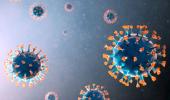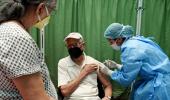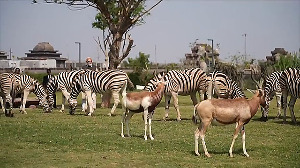In the wake of the surge in respiratory diseases and new JN.1 sub-variant of COVID-19, the World Health Organisation (WHO) said that the virus is evolving and changing and urged the member states to continue with strong surveillance and sequence sharing.

The global body also shared a video of its COVID-19 technical lead, Maria Van Kerkhove, who explained the reason for the recent surges and what precautions can be taken.
'Dr @mvankerkhove talks about the current surge in respiratory diseases #COVID19 and JN.1 subvariant. WHO continues to assess the situation. Follow WHO's public health advice to keep your families and friends safe during this holiday season,' WHO posted on X (formerly Twitter).
Van Kerkhove also took to the social media platform and said that a number of pathogens have led to the rise in respiratory diseases across the world.
'Respiratory diseases are increasing around the world due to a number of pathogens incl #COVID19, #flu, rhinovirus, mycoplasma pneumonia & othersSARS-CoV-2 continues to evolve. JN.1 (subvariant of BA.2.86) is already a VOI and continues to increase in circulation,' she stated.
In the video message, Van Kerkhove said that the recent surge in respiratory infections is due to multiple reasons, including increased gatherings during the holiday season and other infections.
"It's not just COVID-19 that's circulating; we have influenza, other viruses, and bacteria. In other parts of the world, we are entering the winter months, and people are starting to gather for the holiday season. And as people gather, they spend more time indoors, especially if there is poor ventilation. These pathogens that spread efficiently between people and through the air will take advantage," she said.
She further explained that the rise in COVID cases is because the virus is evolving, adding that 68 per cent of the current cases are cases of XBB sublineages and other groupings like JN.1.
"COVID-19 is one of the diseases that is currently on the rise, and this is again due to a number of factors; the virus SARS-Cov-2 is evolving, changing, and circulating in all countries," Kerkhove said.
She added, "In some countries, we have these XBB sublineages, and they represent around 68 per cent or so of the sequences that are shared globally. The other grouping is BA.2.86, most notably JN.1 which causes the full spectrum, everything from asymptomatic infection. All the way to severe disease and death, similar to what we have seen with other Omicron sublineages."
The WHO expert urged the member states to continue with strong surveillance and sequence sharing so that proper steps can be taken to 'potentially modify' the advice for the world.
She also advised people to get vaccinations and, in cases of infection, take clinical care.
"Protect yourself from infection using a number of tools. But also make sure that if you get infected, you get clinical care and get vaccinated when it's your turn to prevent severe disease and death. All COVID-19 vaccines continue to provide against severe disease and death, and this includes all the circulating variants, including JN.1," Van Kerkhove said.
Meanwhile, the Union Ministry of Health has initiated preparedness measures after a case of the JN.1 subvariant of COVID was found in Kerala as part of the ongoing routine surveillance conducted by the Indian SARS-CoV-2 Genomics Consortium (INSACOG).











 © 2025
© 2025